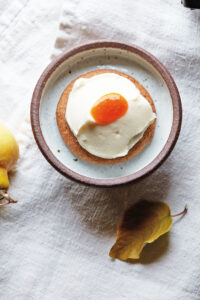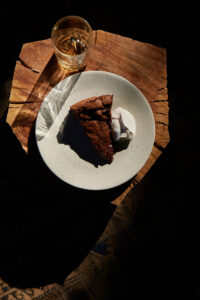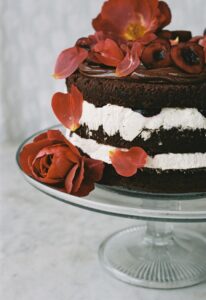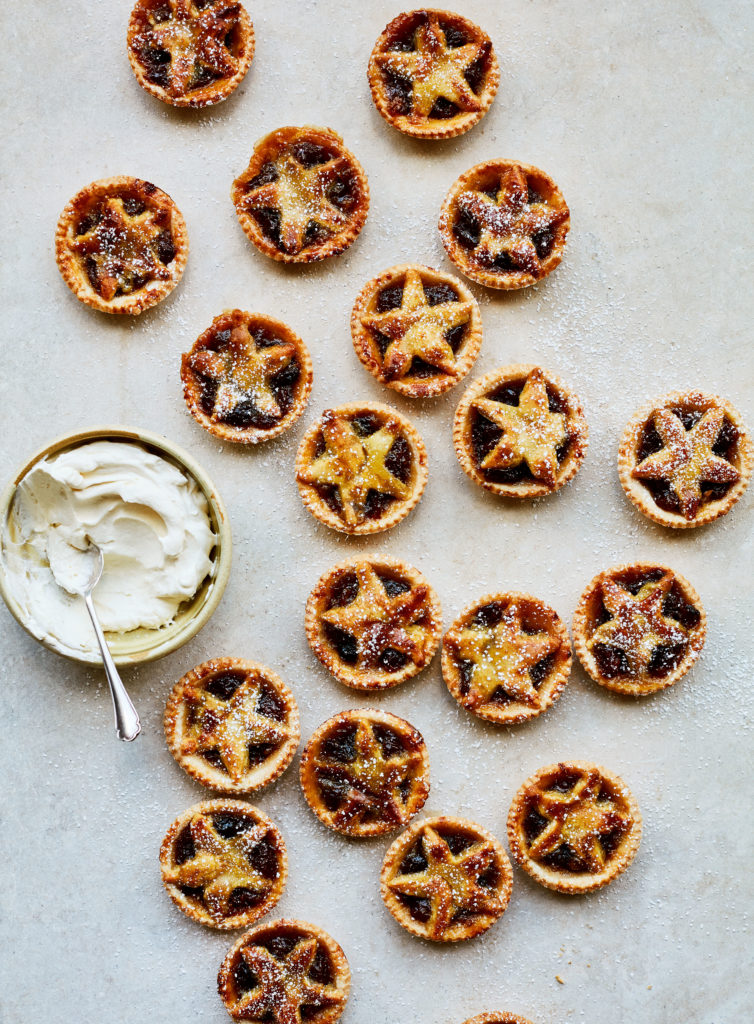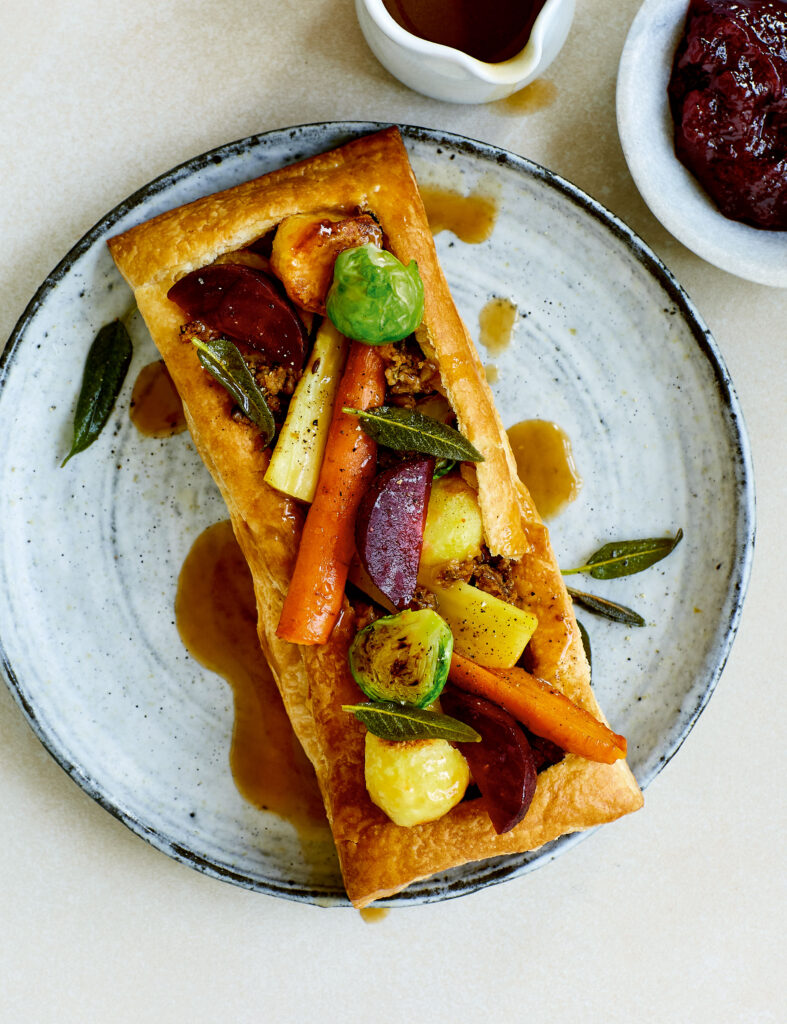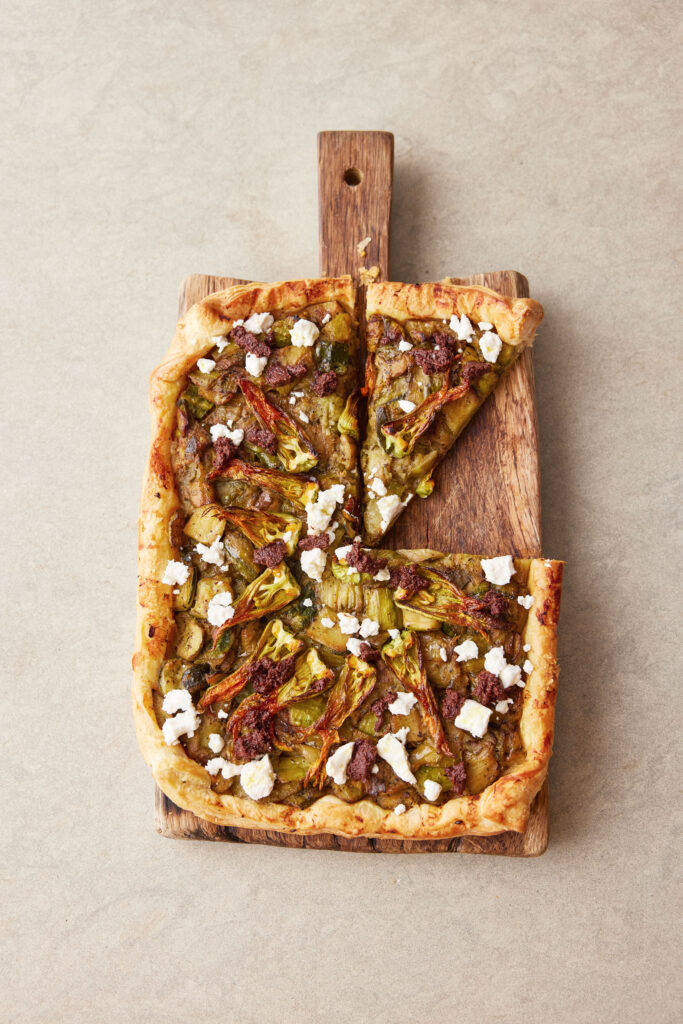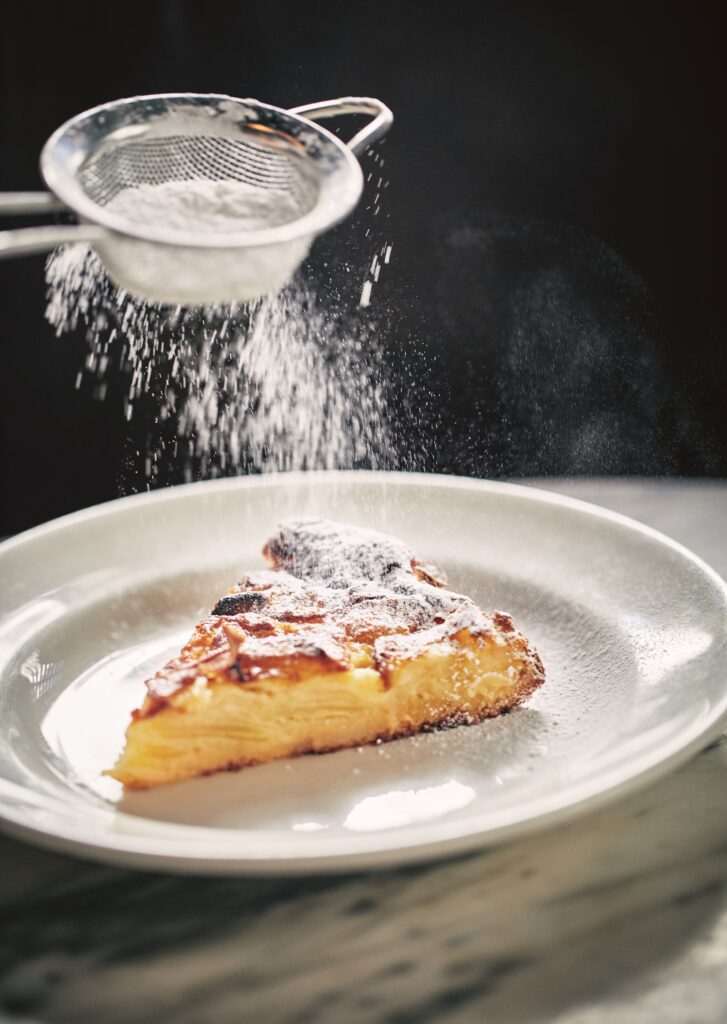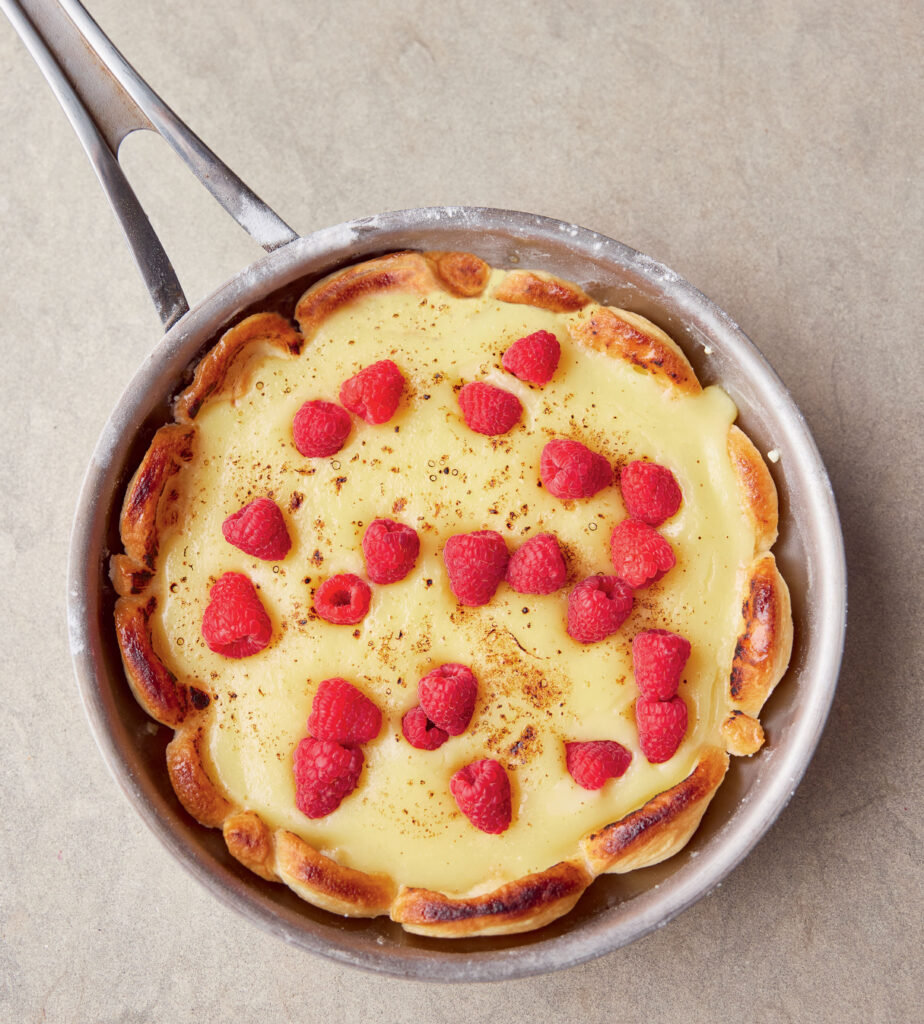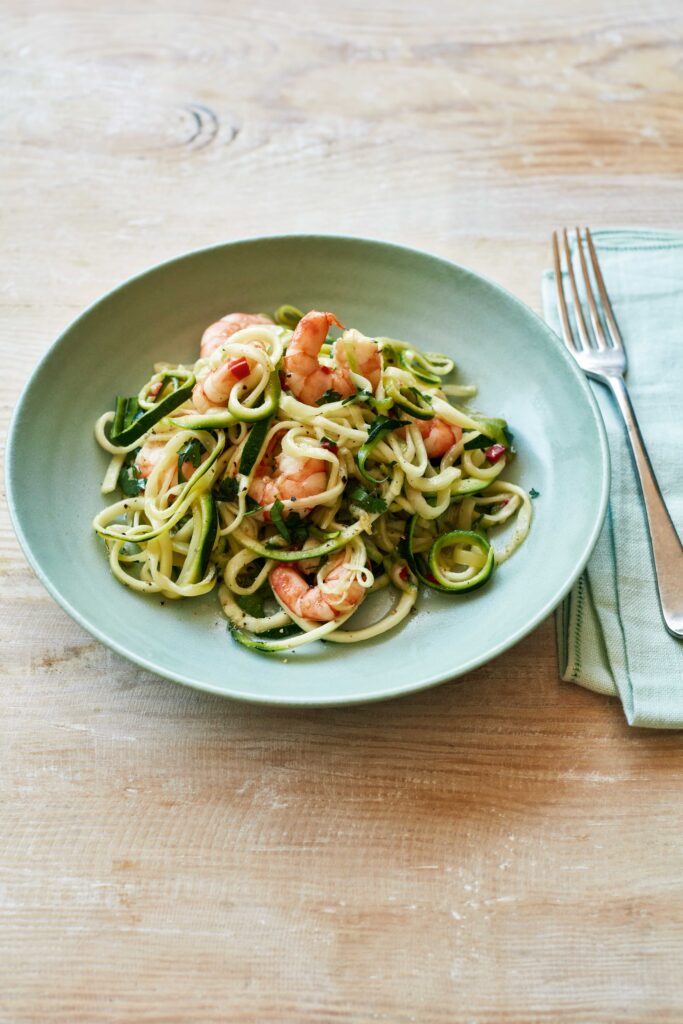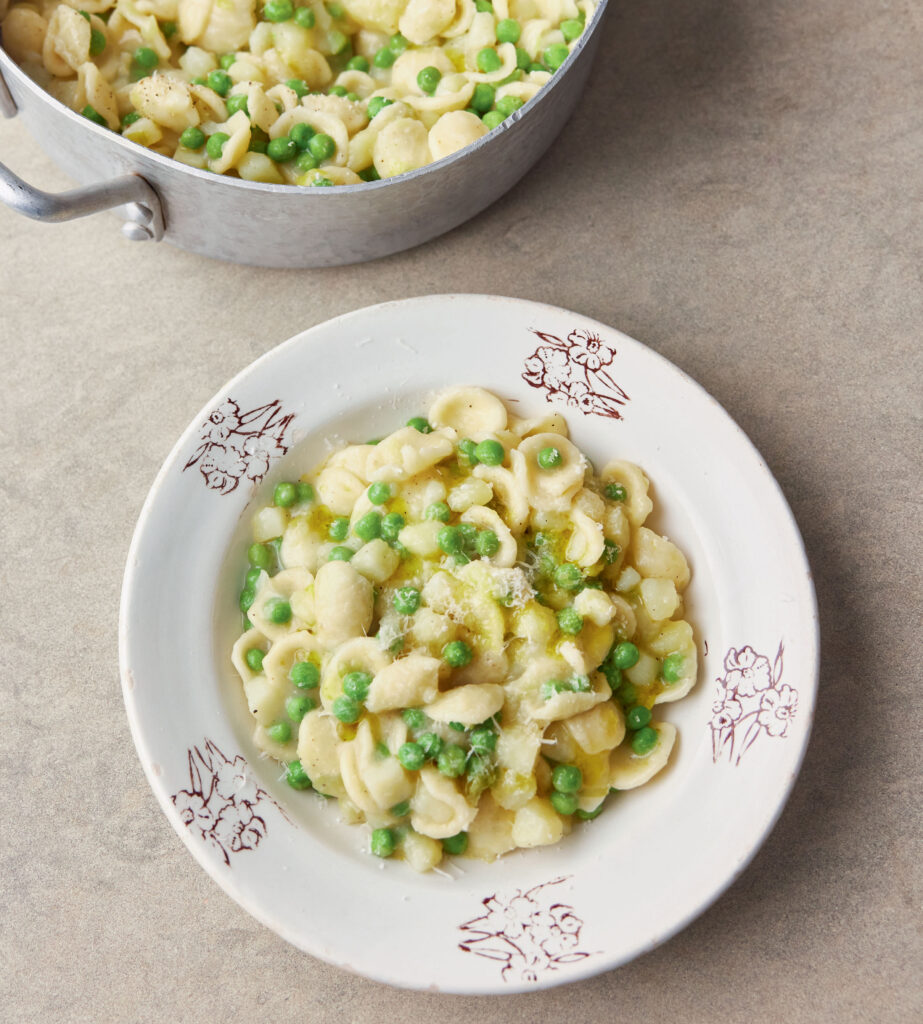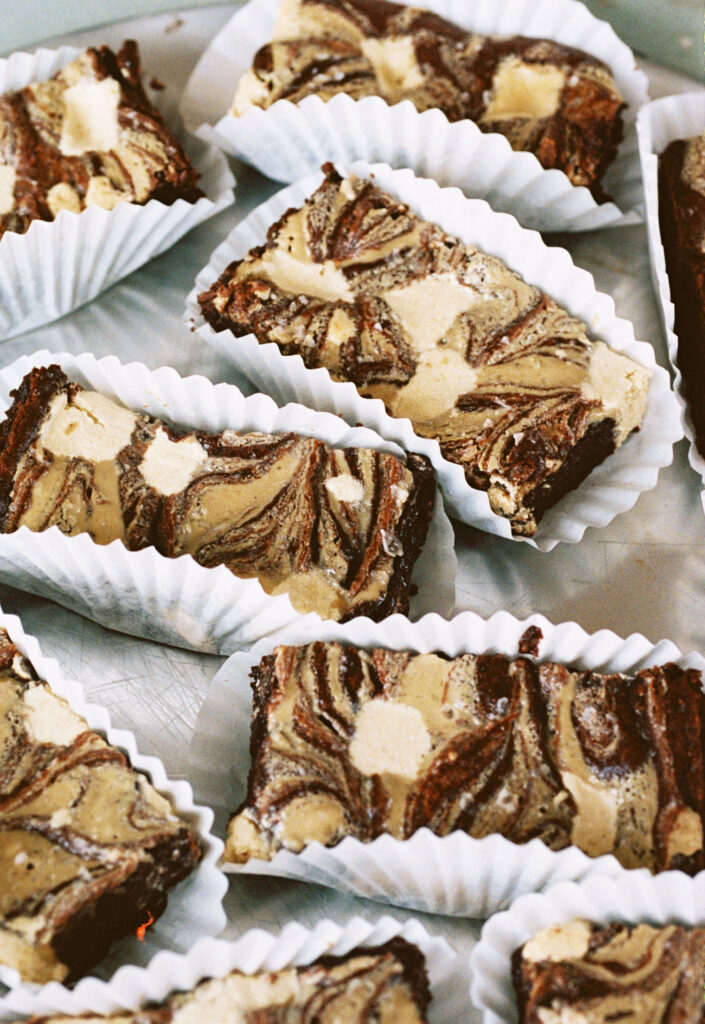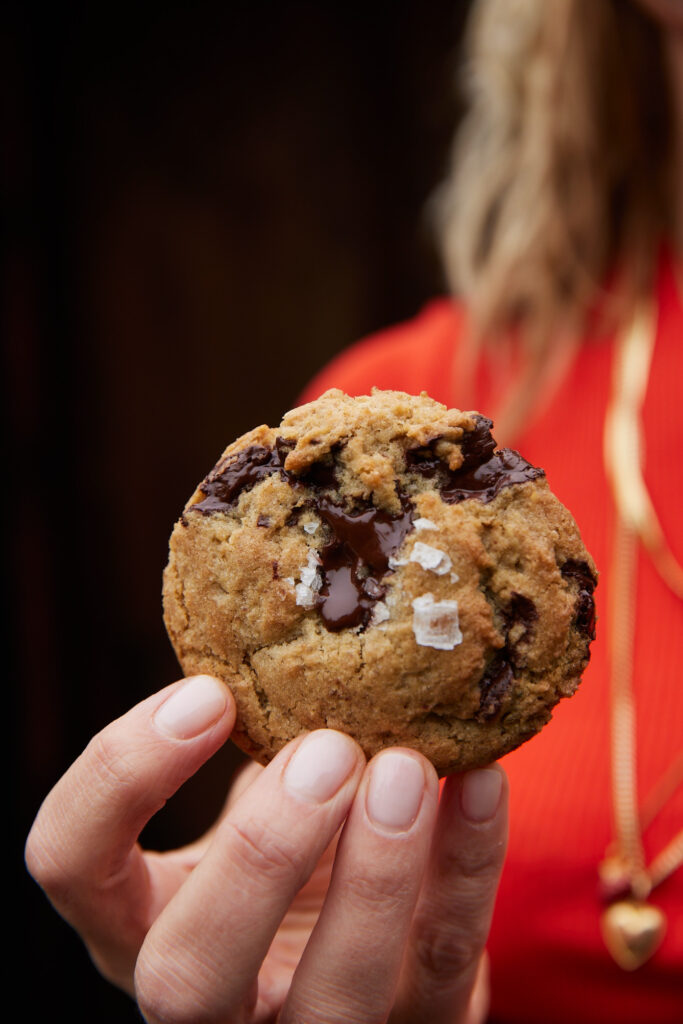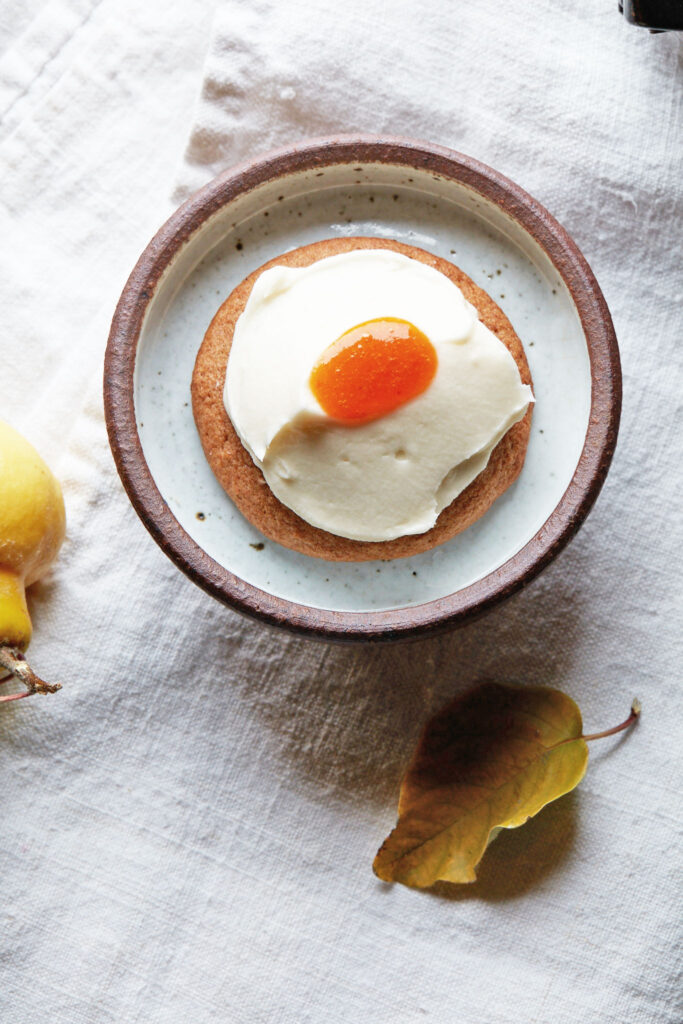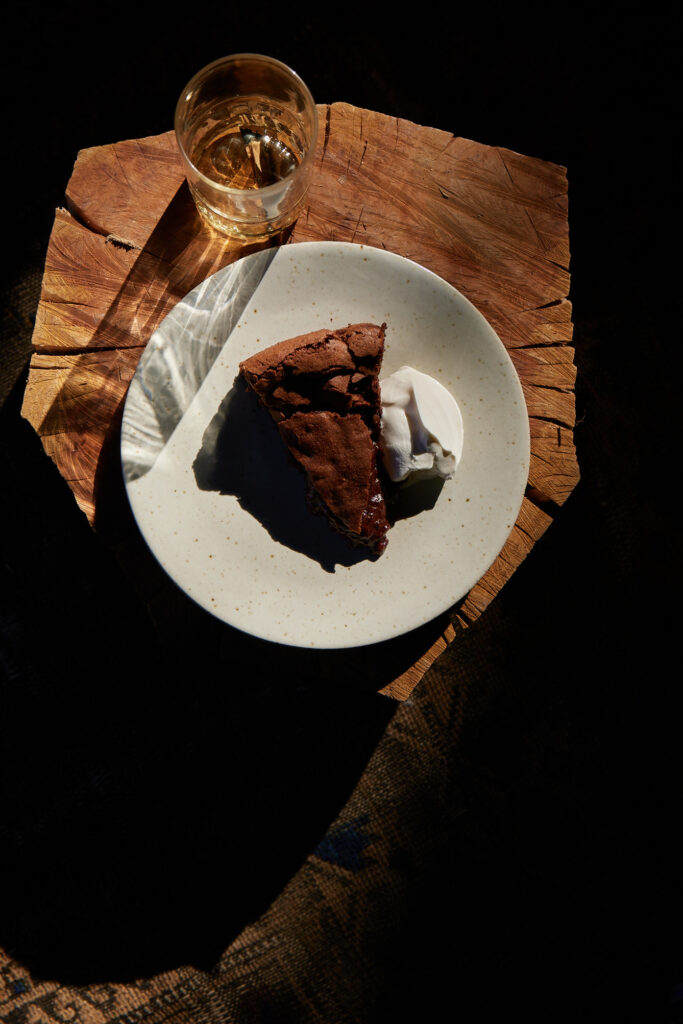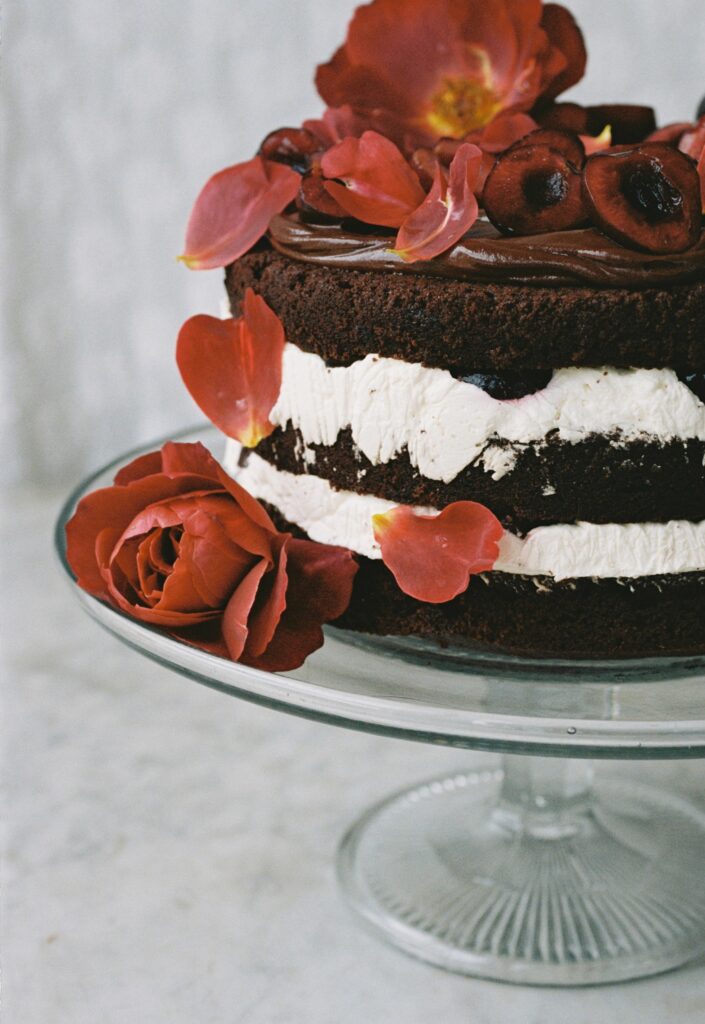Late Summer Peach Tarte Tatin with Peach Leaf Custard
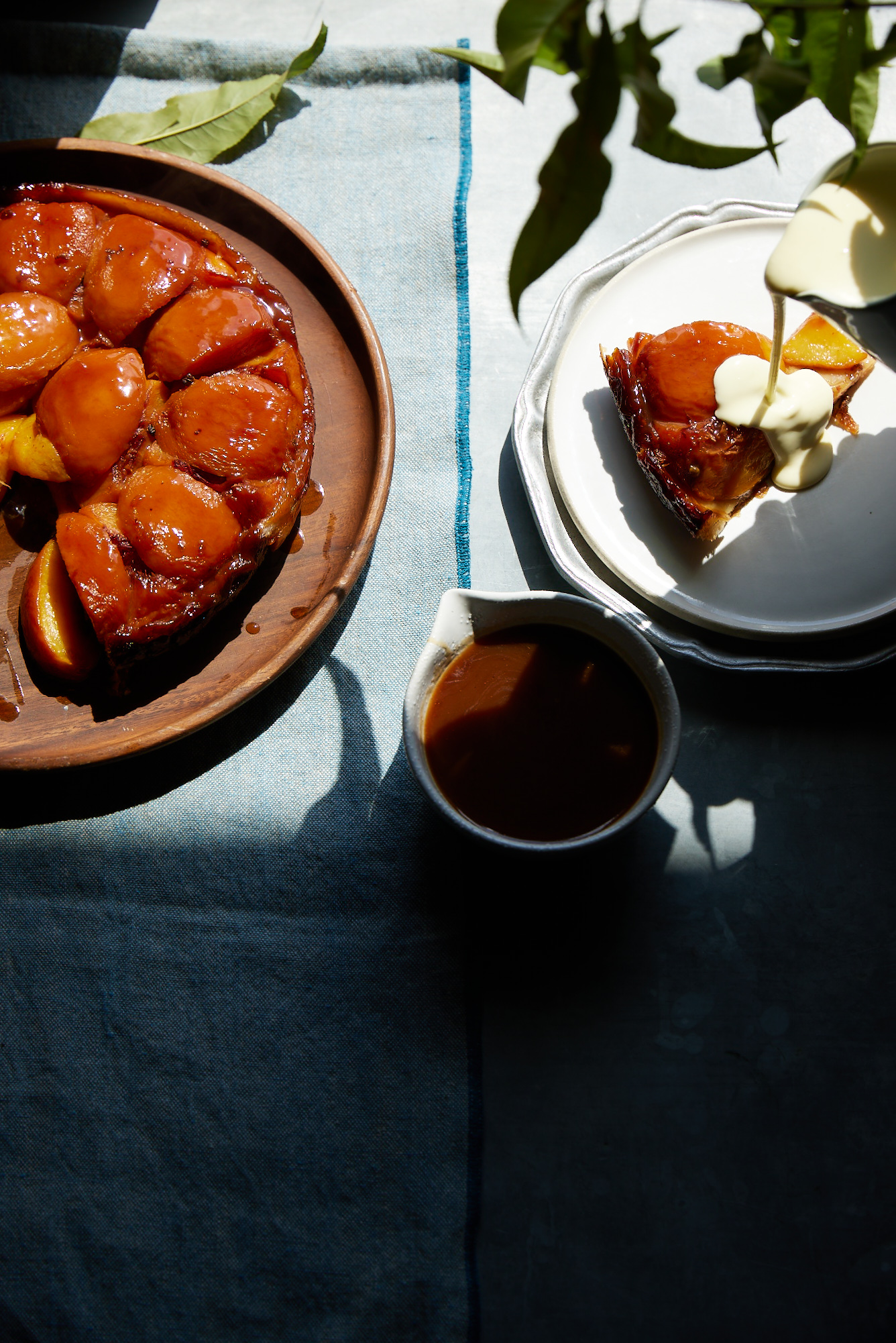
This beautiful recipe is a twist on the classic French dessert made using ripe, late summer peaches and a peach leaf custard.
From the book
Introduction
Oren is a great little restaurant around the corner from my flat in Hackney. It’s Mediterranean-inspired, simple, delicious fare. It’s the type of place you want to visit once a week. The Israeli-born chef-owner Oded is a good baker. His loaves of challah and perfect pillows of pitta bread accompany the food while the desserts are seasonal classics. One of my favourites is a peach tarte tatin. Since trying his, I prefer using peaches to the typical apples. I serve mine with a light custard steeped with fresh peach leaves, which taste of green almonds.
Ingredients
| For the custard: | |
|---|---|
| 3 | egg yolks |
| 480g (2 cups) | single cream |
| 2 tbsp | caster sugar |
| 30–40 | peach leaves, washed and dried (If you can’t get the leaves, add a drop or two of almond extract to the custard instead) |
| Pinch of | salt |
| For the tarte: | |
| 8–10 | large ripe but firm peaches |
| 3 tbsp | unsalted butter |
| 135g (½ cup + 3 tbsp) | caster sugar |
| 500g (1lb 2oz) | puff pastry, rolled into a 30cm (12in) circle and chilled |
Essential kit
You will need: a 25cm (10in) cast-iron frying pan or copper tatin mould.
Method
Make the custard. Separate your egg yolks into a small bowl, reserving the egg whites for another use (they freeze well!). Add the single cream and sugar to a heavy-based saucepan and place over a medium heat until foaming and hot but not boiling. Take a handful of peach leaves and steep them in the steaming cream for about 30 seconds. Dunk them and stir them around as they steep, then remove and discard the used leaves before adding another fresh handful. Repeat until all leaves have been used and the cream is a pale shade of green. To achieve the bright, fresh, peach-leaf flavour, you must work swiftly. Leaving the leaves for too long in the custard changes the flavour and is undesirable. Next, temper the egg yolks with a few tablespoons of the warm cream, whisking until smooth. Add the tempered yolks back into the remaining cream, moving a heatproof spatula or wooden spoon along the bottom of the pan continuously. As soon as the custard thickens on the bottom of the pan, turn off the heat, stir in the salt and pour the custard through a strainer and into a jug. Chill completely in the fridge.
Next, blanch the peaches. Bring a large saucepan of water to the boil. Have ready a large bowl of iced water and have a slotted spoon or small sieve to fish out the blanched peaches. Gently lower the peaches into the boiling water (don’t overcrowd the pan). The peaches will only need about 30 seconds in the water to loosen the skins. Lift one up out of the water and pinch the skin to see if it is ready to slide off. If the skin is still clinging to the flesh of the peach, slip it back into the water for a few more seconds. If it’s peelable, gently add it to the bowl of iced water. Continue until all the peaches have been blanched, then lift them out of the water bath and slip off the skins. Cut the peaches in half, remove the stones and cut into quarters. Set aside on a plate. Don’t worry about any oxidisation that occurs as this will disappear when baked.
Preheat the oven to 200°C fan/220°C/ 425°F/gas mark 7. Prepare a bowl of iced water large enough for a 25cm (10in) cast-iron frying pan or copper tatin mould (or you could set this up in your kitchen sink).
Caramelise 2 tablespoons of the butter and 6 tablespoons of the sugar over a high heat, swirling the pan now and then. Once the sugar has dissolved, use a wooden spoon or balloon whisk to bring it all together. Do not worry if it splits or crystallises, as it will dissolve again during the baking process. You want a deep, dark caramel. Remove from the heat and immediately put the pan in the iced water to stop the caramel from colouring any further.
Arrange the peaches in the pan of caramel, bearing in mind they will be upside down when done, so make them look pretty. I place the curved side down into the caramel, core side up. Place a second layer of peaches on top, core side down, and press gently with your hands, coaxing them to fit together like a puzzle.
Cover with the chilled pastry circle, tucking the edges in between the peaches and the pan, then melt the remaining tablespoon of butter and brush the pastry with it. Sprinkle with the remaining 3 tablespoons sugar, then pierce several times with a knife to allow steam to escape during baking.
Bake the tarte tatin for 45–55 minutes, or until the pastry is crisp and golden, the sugar has started to caramelise on top, and the peaches and caramel beneath are starting to bubble up at the edges.
Remove the tarte from the oven and allow to sit undisturbed for 10 minutes. Have ready a large plate that will completely cover the top of the tarte tatin. Using extreme caution, place the plate over the pan and, using an oven glove or tea towel wrapped around the outside, quickly flip the pan over and turn the tart out onto the plate in one smooth motion, being cautious of any hot liquid or steam that might escape. Serve with cold peach leaf custard.


